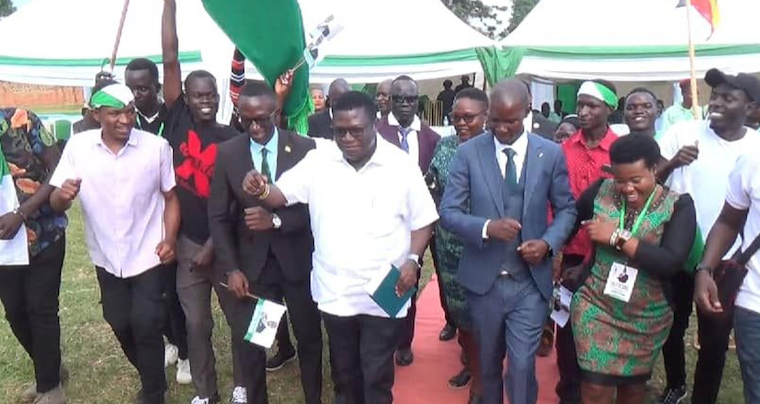Uganda‘s Constitutional Affairs minister and Democratic Party (DP) president, Nobert Mao, has declared that political change in the country cannot be achieved solely through elections and must be negotiated.
He called upon the opposition to engage in talks with President Museveni, who has held power for 37 years, to facilitate a peaceful transition of leadership.
Mao’s remarks were made during the DP’s grassroots mobilization drives in Jinja city.
Negotiation as a Path to Change
Mao emphasized that electoral processes alone are insufficient for achieving political change.
Instead, he underscored the need for negotiation, stating that being at the table is not enough; one must also have a voice, and that voice must be heard.
According to Mao, the DP is actively participating in negotiations, aiming for a sustainable and peaceful transfer of power that benefits all Ugandans.
Peaceful Change and Museveni’s Role
Mao noted that Uganda has not experienced a peaceful change of power in its history, with previous transitions marred by violence and bloodshed.
He called on President Museveni to depart from the patterns set by his predecessors and play a role in overseeing a peaceful transition of leadership.
Mao acknowledged Museveni’s contributions to Uganda’s economic transformation and urged him to consider a peaceful power transfer to consolidate his legacy and safeguard the country’s development efforts.
Stability and the Need for Change
While celebrating the current stability in the country, Mao emphasized that Ugandans also desire a peaceful change of leadership.
He called for collective support from the DP and all Ugandans worldwide to realize this need.
Mao cited historical political turmoil in Uganda, highlighting how it had negative impacts on the nation, and expressed his commitment to participating in the peaceful power handover process.
Addressing Social Evils
Mao urged President Museveni to address social issues such as corruption and tribalism, which he believed hindered Uganda’s progress.
He called upon Museveni to eliminate these problems, emphasizing their adverse effects on the nation’s growth and unity.
Youth Involvement and Peaceful Transition
Ismael Kiirya, the Uganda Young Democrats president, encouraged the country’s youth to focus on acquiring meaningful skills that would enable them to participate actively in the struggle for political change without resorting to violence.
This emphasizes the importance of peaceful and youth-driven political transformation in Uganda.
